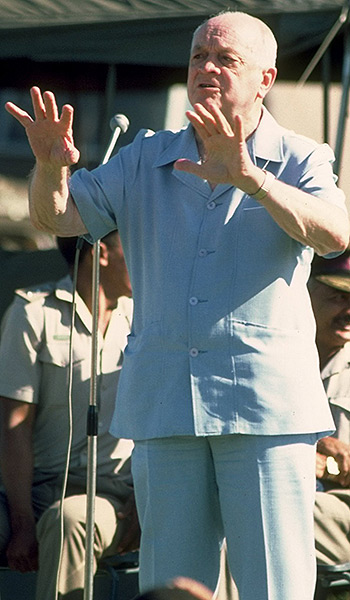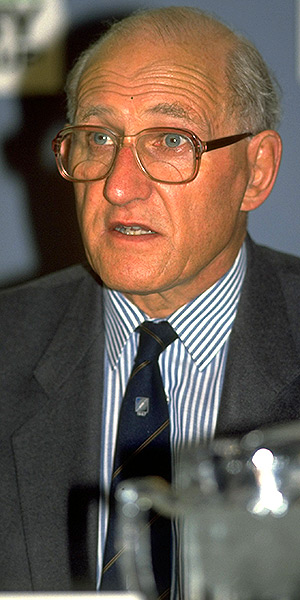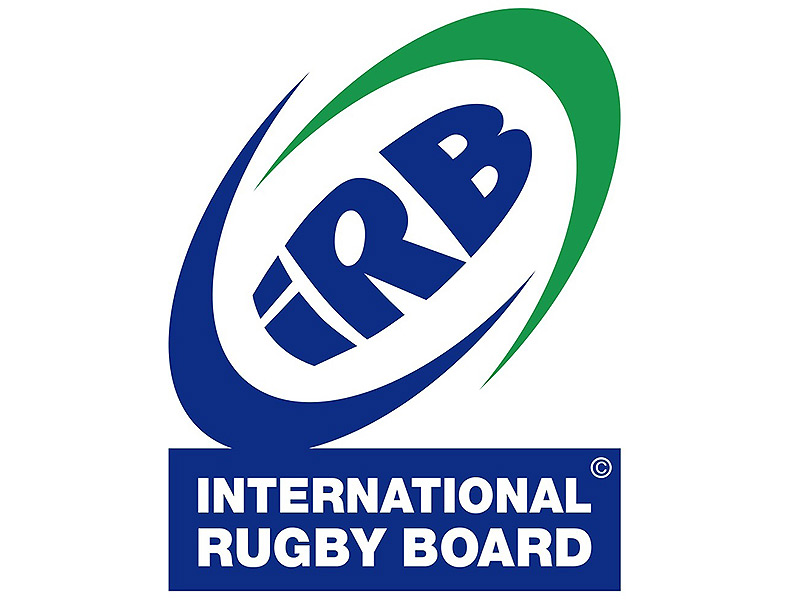World Cup: How it changed the game
Rugby football today is a different game, because of the World Cup whose first edition was 28 years ago.
International rugby was – if one ignores the claim of Li Ju that the first international was played between China and Japan in the 1st century BC – first played in 1871, the year before the first soccer international. That, 1871, is 134 years ago, which is longer than 28 years ago.
But anybody with a memory of the past 28 years will know that rugby football has changed radically – in ethos, law and structure.
The rugby calendar now works on a four-year cycle. It was not a novel idea. Soccer had been doing it, also quadrennially, since 1930.
The very introduction did not happen without opposition.
It was suggested in the late 1950s by a group led by Wallaby Harold Tolhurst of Australia. That got nowhere. In 1968 the IRB announced that it did not want a World Cup. In 1979 Bill McLaughlin of Australia brought it up again and suggested 1988 as a date to hold it.
In 1982, Neil Durden-Smith, an Englishman this time, a sports commentator who was at one stage the aide-de-camp to the governor of New Zealand, again proposed a World Cup. In March 1983 the IRB discussed it and left it there, but Australia put forward a proposal and New Zealand did likewise in March 1984. This time the IRB did a feasibility study and then, at the headquarters of French Rail (Société nationale des chemins de fer français) in the Rue du Commandant Mouchotte in Paris on 20-21 March 1985, the matter went to a vote.
Each country at the meeting – England, Scotland, Ireland, Wales, South Africa, New Zealand, France and Australia – had two votes – 16 in all.
Australia, New Zealand and South Africa did not enjoy the regular flow of Tests that the other five had. Australia suffered annual losses to the paychecks of Rugby League, a more prominent game in Australia and there was great support for the World Cup from the belligerent Wallaby prop Nick Shehadie, who was the Lord Mayor of Sidney and the President of the Australian Rugby Board. France, whose game was not an extension of public school privilege, had no problem with increased earnings and in any case enjoyed bloodying the nose of the other four who had kicked them out in the 1930s.
Australia, New Zealand and France meant six votes out of 16. South Africa threw in the votes of Danie Craven and Professor Fritz Eloff and the votes were tied at eight-all. But then John McGregor Kendall-Carpenter, a public school headmaster and a former England captain, a highly regarded member of the RFU, then broke ranks and sided with those in favour of the World Cup. Then a Welsh vote did the same. That made the vote 10-6 (both Scots, both Irish, one English and one Welsh) in favour of the World Cup. It would go ahead – and rugby football was forever changed.
There was a lot of pressure on rugby at the time.
Players were going to France and Italy to play and not just for culture, food and wine. There was an Australian entrepreneur with plans for a world rugby organisation akin to Kerry Packer's in cricket, players, aware of the big earning through rugby and television, were more and more wanting their share.
In 1985, the All Black tour to South Africa was cancelled by a court order, but the next year all but two of the 1985 team toured South Africa as the New Zealand Cavaliers and in 1987 a team from the Pacific islands did likewise. There was pressure on rugby to cope on several fronts that threatened to crack rugby apart at a time when players were not allowed to receive payment for books they wrote and going off to Rugby League was treachery and punished with ostracism.
South Africa's vote was crucial at this meeting as it produced the tie. But South Africa knew full well that it would not be allowed to attend – not after the 1969-70 tour ofthe Four Home Unions, 1971 in Australia and 1981 in New Zealand. But South Africa wanted an invitation.
Those put in charge of the World Cup Committee were John Kendall-Carpenter and Dick Littlejohn of New Zealand. There was no invitation to South Africa, but Craven got in pressured touch with Kendall-Carpenter, and the invitation came to South Africa who then declined to take part for the sake of the game. They also cancelled the B&I Lions tour for 1986.
It was a time of upheaval great enough to be dubbed a revolution.
By Paul Dobson
@rugby365com




















































